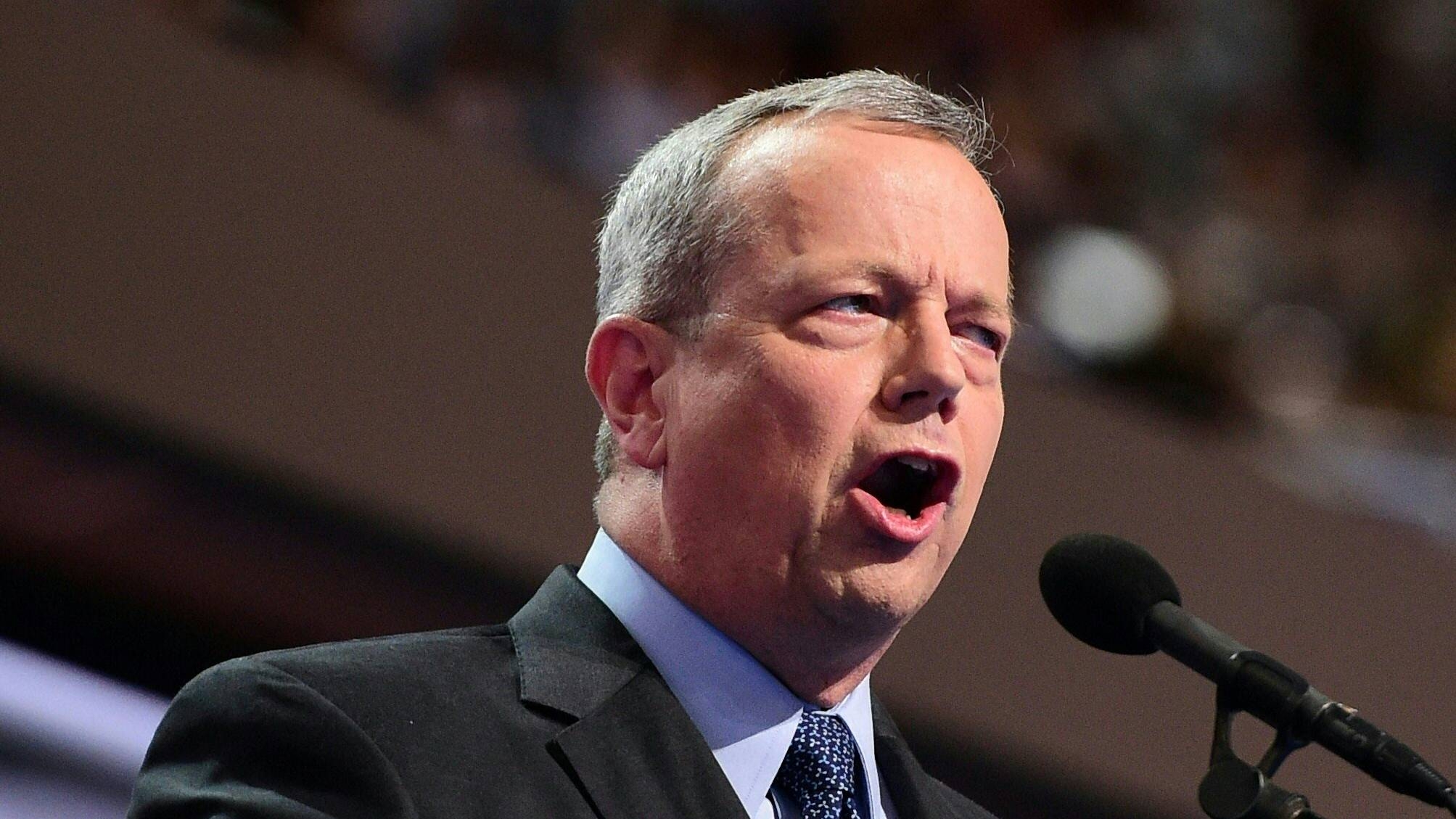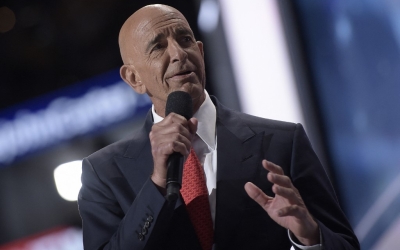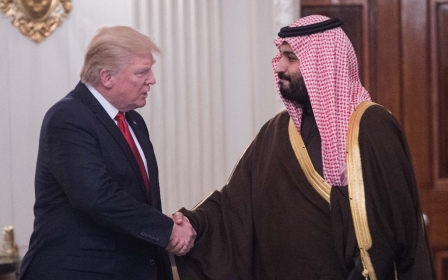FBI investigates former US general over alleged Qatar lobbying role

A retired four-star general is under FBI investigation for allegedly trying to help Qatar navigate a diplomatic crisis with its Gulf neighbours in 2017 and then lying to investigators about his role, according to court documents.
The documents, which were obtained by the Associated Press and The New York Times, outlined a federal case against Retired Marine General John Allen, who now serves as president of the prominent Washington-based think tank Brookings Institution.
Authorities say Allen worked to help Doha influence US policy in 2017, when Saudi Arabia, the United Arab Emirates and other countries announced an economic and diplomatic blockade of Qatar. Former US President Donald Trump appeared to side against Qatar.
The investigation into Allen is a part of an expanding probe that has already ensnared Richard Olson, a former ambassador to the UAE and Pakistan, who pleaded guilty to federal charges last week, and Imaad Zuberi, a prolific political donor now serving a 12-year prison sentence on corruption charges.
According to the documents, Zuberi "viewed the diplomatic crisis as a business opportunity" and began working on selling lobbying services to Qatar. He contacted Olson, who in turn brought in Allen.
"If we can do this, we will own half of Qatar," Zuberi wrote to Olson in a WhatsApp message cited in the filing.
US federal law stipulates that any individual lobbying for a foreign government must register with the Department of Justice.
"There is substantial evidence that these FARA violations were willful," FBI agent Babak Adib wrote in a search warrant application, referring to the Foreign Agents Registration Act. Apparently filed in error, the warrant was removed from the docket on Wednesday, but the FBI affidavit is publicly available through a separate, nonprofit legal-research website.
Adib said Allen failed to disclose "that he was simultaneously pursuing multimillion-dollar business deals with the government of Qatar". The FBI said Allen gave a "false version of events" about his work for Qatar in a 2020 interview and failed to produce relevant emails in response to a grand jury subpoena.
Beau Phillips, a spokesperson for Allen, told The New York Times that the former general "voluntarily cooperated with the government’s investigation into this matter. John Allen's efforts with regard to Qatar in 2017 were to protect the interests of the United States and the military personnel stationed in Qatar. John Allen received no fee for his efforts."
Allen used his Brookings email account for some Qatar-related communications, court papers say. Qatar has long been one of Brookings' biggest financial backers, though it says it has stopped taking Qatari funding.
Brookings and the Qatar embassy to the US did not immediately respond to Middle East Eye's request for comment. NYT reporter Mark Mazzetti tweeted on Wednesday evening that Allen had been placed on administrative leave from Brookings, effective immediately.
Lobbying US Congress
Federal authorities say that Allen lobbied the then-national security adviser, HR McMaster, to have the administration adopt a friendlier tone towards the Qataris amid the diplomatic row between Doha and other Arab nations.
In an email to McMaster, Allen said Qatar wanted the White House or State Department to call on all sides to "act with restraint".
Federal officials say that, two days later, the then-secretary of state, Rex Tillerson, called on Gulf countries to "ease the blockade against Qatar" and asked, "that there be no further escalation by the parties in the region".
Allen did not tell McMaster he was being paid for his work, according to the court filings.
Federal authorities say Olson and Allen travelled to Qatar to meet the emir and other officials.
Allen provided advice on how to influence US policy and said the Qataris should "use the full spectrum" of information operations, the affidavit says.
Before they went to Doha, Allen suggested he be paid a $20,000 "speaker's fee", the affadavit said, and then "work out a fuller arrangement of a longer-term relationship".
Zuberi paid Allen's first-class airfare, the affidavit said, but there was no indication the fee was paid.
After their trip to Qatar, Allen and Olson also lobbied members of Congress, particularly supporters of a House resolution linking Qatar to terror financing, the FBI said.
Among them was California Democrat Ted Lieu, who told officials he did not recall exactly what Allen said but thought he was there "to support the Qatari officials and their position".
Middle East Eye delivers independent and unrivalled coverage and analysis of the Middle East, North Africa and beyond. To learn more about republishing this content and the associated fees, please fill out this form. More about MEE can be found here.





